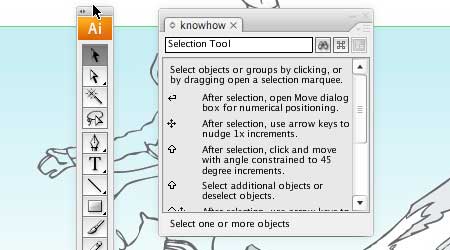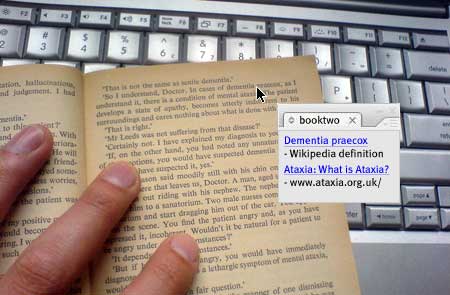Adobe have just launched a fascinating project called Knowhow which allows user-generation of help data in CS3. Items in knowhow’s del.icio.us network with contextual CS3 terms appear as tooltips in CS3 itself (image and link via swissmiss).

Flickr and many other services uses simple tagging to provide metadata around their content, but this system offers much more: additional content, outside the original system, curated by users, adding information back into the system.
I’d love to see a system like this for books. I search google and wikipedia all the time for additional information on things I discover between paper pages – imagine if this information could be aggregated and linked back to the original book, just like Adobe’s system. Googling dementia praecox from p. 31 of Eric Stanley Gardner’s The case of the rolling bones takes me to Wikipedia’s definition and further background reading on ataxia. Tagging these pages in del.icio.us or similar with not only information about them (ataxia, mentalillness) but why I arrrived at them (literaryreference, ericstanleygardner, perrymason, thecaseoftherollingbones) creates a network of metadata around the book which could be accessed by an ereader – or cross-referenced with other texts to create indexes of mental illness references in literature, medical references in crime novels, and so on.

The joy of this system is that it does not rely on the publisher and the reader agreeing on what’s important information in the book – publishers can still create indexes and concordances to their work, but readers can create and share their own indexes – so a mental health practitioners’ index to Perry Mason would contain differently weighted information to a policeman’s, for example. As with many of these ideas, non-fiction books would probably benefit from this much more than novels – can you imagine a cookbook where you got access to other readers’ researches as well as the authors and your own? – but I like to put fiction through these things too…
Layered Content: Another Good Example from BookTwo…
Trackback by Joe Wikert — September 17, 2007 @ 5:18 pm